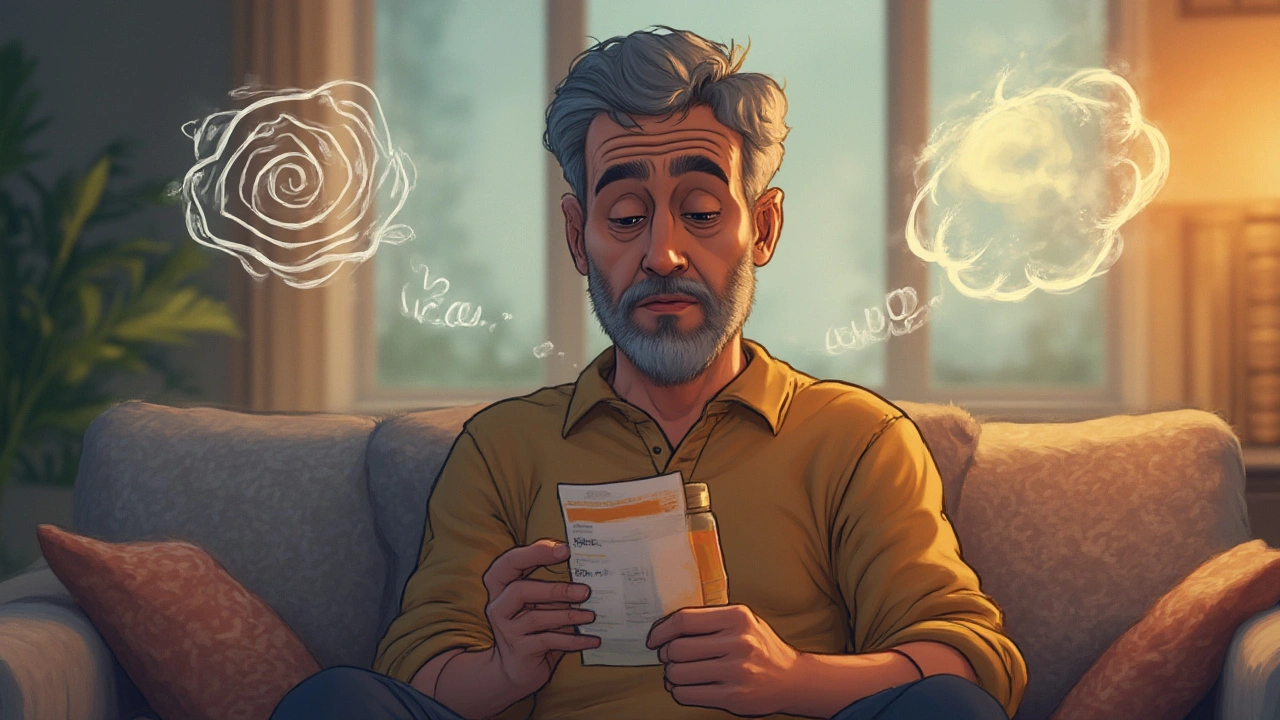Dizziness: What’s Making You Feel Light‑Headed?
Ever feel like the room is spinning or your head is about to pop out of its socket? That’s dizziness, and it’s more common than you think. It can strike after a quick stand, a stressful day, or even a new medication. The good news? Most of the time it’s harmless and easy to fix.
Why Does Dizziness Happen?
There are a handful of everyday reasons that make you feel off‑balance. Dehydration tops the list—when your body loses water, blood pressure drops and you get that woozy feeling. Skipping meals or low blood sugar can do the same. Alcohol, caffeine, and certain meds (like antihistamines or blood pressure pills) also tip the inner‑ear balance.
Inner‑ear problems, such as benign paroxysmal positional vertigo (BPPV), are another common cause. Tiny crystals shift inside the ear and send false signals to your brain. Even a simple ear infection can throw things off.
Stress and anxiety play a sneaky role, too. When you’re anxious, breathing gets shallow, oxygen levels dip, and your heart races— all of which can make you feel light‑headed. If you’ve recently started a new prescription, check the side‑effect list for dizziness; many drugs list it as a common reaction.
Quick Ways to Stop the Spin
First, sit or lie down right away. Put your feet flat on the floor and breathe slowly. A glass of water helps if dehydration is the culprit. If you’re low on food, munch a snack with protein and carbs—think a banana with a handful of nuts.
For BPPV, the Epley maneuver is a tried‑and‑true move. Sit up, turn your head 45 degrees toward the affected side, then lie back quickly with your head hanging over the edge. Hold for 30 seconds, sit up, turn the other way, and repeat. Many people feel better after a few rounds.
When stress is the trigger, try grounding techniques: focus on five things you can see, four you can touch, three you can hear, two you can smell, and one you can taste. It redirects attention and steadies your breathing.
If you suspect a medication is to blame, talk to your pharmacist or doctor. They might adjust the dose or suggest an alternative that won’t make you feel dizzy.
When to Call a Doctor
Most dizziness fades in minutes, but you should seek medical help if it lasts longer than a day, comes with chest pain, severe headache, sudden vision loss, or trouble speaking. These could signal a heart or neurological problem that needs urgent care.
Also, if you’ve fallen or hit your head while dizzy, get checked out. Even a mild concussion can cause lingering balance issues.
Older adults should be especially cautious. Dizziness can lead to falls, which often result in broken bones. Regular check‑ups can spot blood pressure changes, medication interactions, or inner‑ear issues early.
In short, dizziness is usually a signal that something simple needs fixing—drink water, eat a snack, or rest. But if the spin sticks around or comes with scary symptoms, don’t wait. A quick call to your healthcare provider can rule out serious causes and get you back on solid ground.

Why Patients Ditch Gabapentin: Side Effects and Best Alternatives Explained
Jul, 17 2025Gabapentin can cause dizziness, weight gain, and foggy thinking. This article breaks down these issues and shows practical alternatives you might not know about.
READ MORE